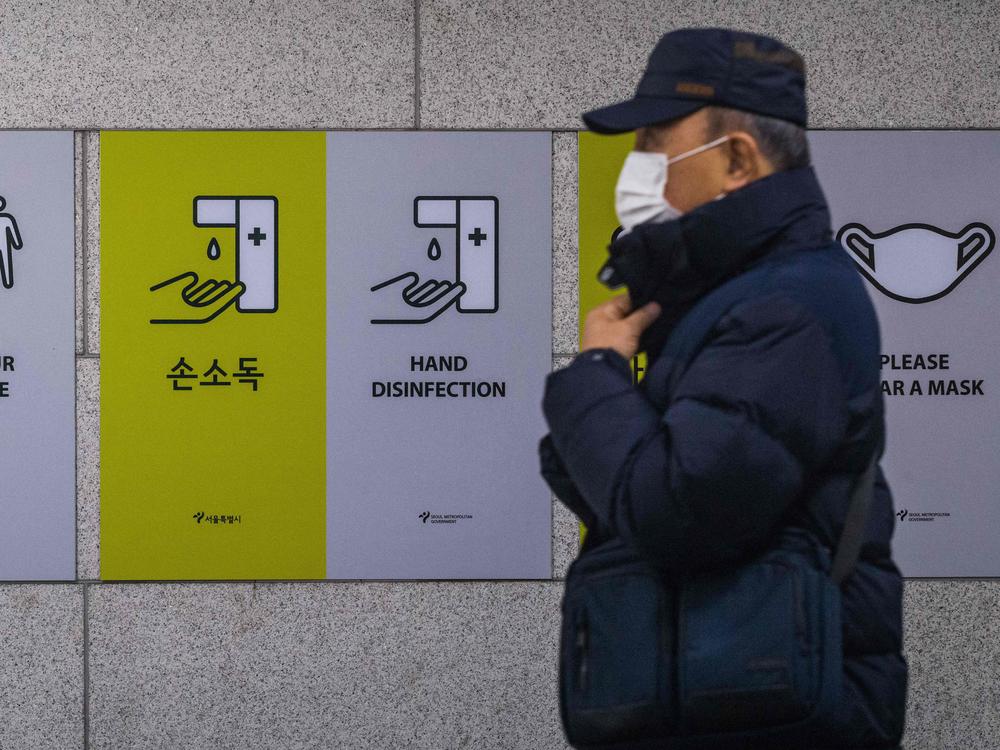Section Branding
Header Content
South Korea tightens restrictions after omicron is detected and cases surge
Primary Content
South Korea's return to normal life has come to a halt with fast-surging COVID-19 infections. Health authorities announced Friday that they are tightening coronavirus restrictions after the country's number of daily new cases doubled in the past month.
Private gatherings in the capital area will be limited to six people starting Monday, and a proof of vaccination or negative PCR test will be required at restaurants, coffee shops, libraries, museums and movie theaters.
These are the first adjustments to social measures since the country began a long-awaited transition to a new phase in pandemic response in early November and lifted most of the restrictions.
The measures are not as strict as they were before the transition. Nevertheless, they exemplify the country's struggle to regain normalcy in the face of emerging challenges — growing breakthrough infections and the new virus variant.
Daily new case numbers in South Korea topped 5,000 for the first time on Tuesday, while the number of deaths and patients in critical condition all hit record highs in the past week. Hospital beds in the capital area, which accounts for about 75% of the total infections, are almost at capacity.
Sohn Young-rae, the director of social strategy at the South Korean health ministry, said last week that while the growth in total infections remains within health authorities' expectations, the number of critical cases is "considerably higher than our expectation."
The Korea Disease Control and Prevention Agency attributes the steep rise to the shorter-than-expected longevity of protection from vaccines among the elderly, who were among the first to get the shots. The agency found that immunity starts to wear off in three to four months for those ages 60 or older.
According to KDCA, 86% of recently diagnosed patients and 57.5% of the patients with critical symptoms in the age group are fully vaccinated. The rate of breakthrough infection among those in their 50s or older markedly rose since mid-October.
The government rushed to have more people get booster shots in the past few weeks, shortening the interval between the second shot and the booster and authorizing them for all adults. It also imposed a six-month expiration date on vaccine passports. As of Friday, 6.6% of the population has received a booster shot.
Meanwhile, the country confirmed its first Omicron cases on Wednesday. Six cases total have been confirmed as of Friday, and the tally is likely to go up as contact tracing proceeds.
Although fairly little is known about the new variant, omicron, South Korea responded to concerns about its potentially higher transmissibility by limiting entry from nine African countries and requiring all travelers arriving from outside the country to quarantine for 10 days, regardless of their vaccine status.
"We are in a double crisis with not only the delta variant but also the Omicron," KDCA director Jeong Eun-kyung told the nation on Thursday. "We will go back to the mindset we had in the beginning of the pandemic to overcome this crisis."
Copyright 2021 NPR. To see more, visit https://www.npr.org.
Bottom Content

